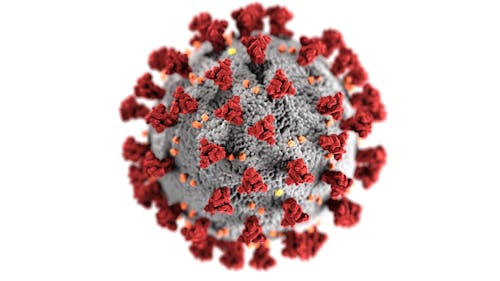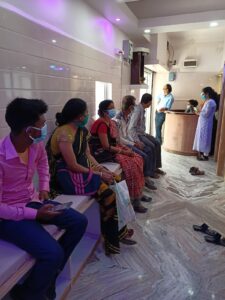Global Hysteria

By Suhotro Gorai, University of Amsterdam, Netherlands May 10, 2020
“The deviation of man from the state in which he was originally placed by nature seems to have proved to him a prolific source of diseases.” – Edward Jenner.
Starting from the deadly Bubonic plague, then came the Spanish flu, SARS outbreak, Ebola crisis and so many crippling infections. It appears that Edward Jenner, a pioneer scientist to popularize vaccination starting with smallpox, was right. Now we have the coronavirus taking a toll on humans. But is it any different? I mean, we have seen things like this before. Then why is it so important? Here are my 2 cents.
Let me first introduce you to the virus. Coronaviruses are a group of viruses which are one of the causes for common cold. It belongs to the same family of viruses that caused severe acute respiratory syndrome (SARS) and Middle east respiratory syndrome (MERS). These viruses are known to have clublike projections on their surface which look like crowns (‘corona’ is Latin word for ‘crown’). These protrusions assist in viral attachment to host cells and also the reason for generation of antibodies against them by the immune system.

After infection with this virus, it may take about 2 to 14 days on average to display symptoms. The primary ones resemble a typical cold with sneezing, fever, cough and runny nose.

The infection can get severe by spreading from the throat to sinuses, lungs and ears. It is no surprise that they are known to cause acute respiratory illness like pneumonia, most commonly in old age people and those with weak immune system. Those suffering from diabetes, cardiovascular diseases and respiratory illnesses are at high risk.

The possible routes of transmission include droplets inhaled from infected person and touching surfaces which are already infected. That is why it is being emphasized to wash your hands regularly and use hand sanitizers (alcohol based, others of no use) when washing is not feasible. Sneezing must accompany the use of tissues or elbow as a guard to prevent its spread. There is increasing evidence to show that asymptomatic (no visible symptoms) people may be causing human-human transmission during the incubation period. Another way to prevent this disease is to start practicing social distancing, avoid large gatherings and non-essential travel to high-risk areas. Infected patients must remain in isolation, wear masks and stay indoors to prevent spread. Those showing possible symptoms are being advised to stay at home and if situation aggravates, then contact the local doctor for immediate help.
The main way it is detectable now is using reverse transcriptase polymerase chain reaction (RT-PCR) test. In simple words, this technique helps to identify genetic material of the virus in clinical samples. It looks for viral RNA which confirms the infection. New tests are on the way to be developed but by far this seems the easiest and reliable diagnostic test for potential patients.

Since it is caused by virus, antibiotics are of no use as they target bacteria. For now, it is just wise to alleviate symptoms using paracetamol for fever. Many companies are now targeting towards coronavirus vaccine as investments surge in that area due to the global crisis. But we cannot predict the status of coronavirus at that point. Possibly, the virus might already mutate (change its form) by the time the vaccine is ready. It would be necessary to delve deeper into how this virus is similar to the one caused by SARS/MERS and develop treatment accordingly.
With what started as an isolated scenario in Wuhan city of China, it grew exponentially leading to the World Health Organization declaring it a global pandemic. According to 15th March data with 0.17 million cases and around half of which is recovered, I can already picture sun shining through the cloud though number of cases continue to rise every day. About 157 countries have been affected which is massive in terms of the virus reach. Although this virus is no different from any cold flu virus, necessary steps to contain further possible spread are being authorized all around the globe. Another important thing concerning our daily life is to avoid panic. Panic leads to chaos and it will hamper the slowdown trying to be achieved by governments all across the world. It is of high importance that we, as the human race, should show solidarity in tackling this menace before all hell breaks loose.
Let’s meet the author Suhotro Gorai

Suhotro Gorai is a Masters student of Biomedical Sciences at the University of Amsterdam, Netherlands. He has experience in Cell Biology, Molecular Biology, Immunology and Microbiology in terms of project work and curriculum. He is actively interested in research on infectious diseases and the immune system.







